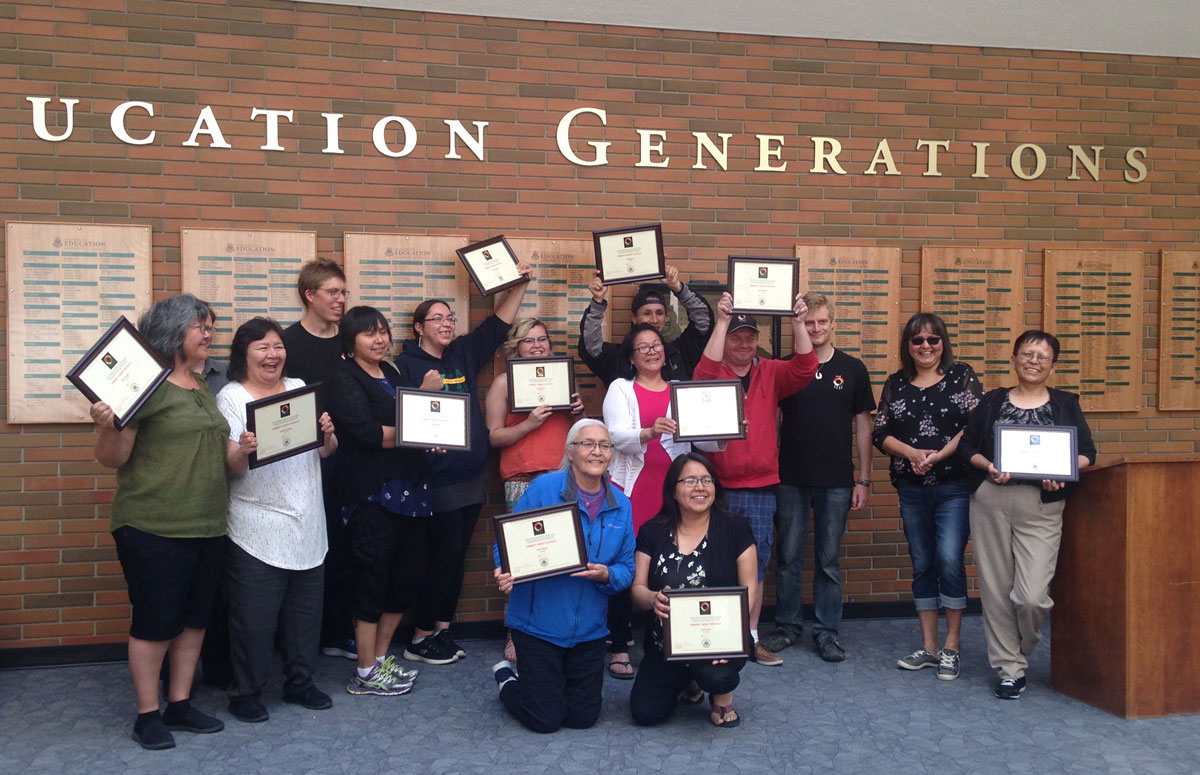
Graduates of the Canadian Indigenous Languages and Literacy Development Institute (CILLDI) summer school
This summer, the Canadian Indigenous Languages and Literacy Development Institute (CILLDI) celebrates its twentieth anniversary working for the revitalization of Indigenous languages in Canada. A tri-faculty effort of Arts, Education, and Native Studies - CILLDI's annual Summer School and other initiatives support Indigenous language activists to better protect, preserve, promote, practice and pass on their languages.
Directed by linguist Jordan Lachler, CILLDI offers bursaries to support students participating in their annual Summer School, some of whom earn an 18-credit Community Linguist Certificate which prepares them to lead community-based language projects, run literacy training workshops, and transcribe, analyze and archive community stories and histories.
CILLDI began offering its summer program in 2000 with just a single course and nine enrolled students. This summer, they will offer 15 different courses and expect as many as 100 students to attend, coming from Indigenous communities across western, central and northern Canada. Each year, more than a dozen Indigenous languages are represented among the students and instructors at the Summer School, making it the largest and most diverse of its kind in North America. All told, there have been over 2100 course enrollments since that first course back in 2000.
Volunteer Program Assistants help make all this happen, as CILLDI engages not only its students, but the on-campus community as well. Many of the assistants are students in the Linguistics department, although some come from MacEwan or even from the United States to support the Summer School. One 2017 volunteer noted that "you can put your linguistics experience to use and make a meaningful impact for real people" by volunteering with CILLDI.
Community connections are a key part of the CILLDI legacy. "I always feel so rejuvenated after I attend a CILLDI class, and being able to connect with like-minded people," wrote one participant. Building a community among fellow students and staff empowers participants to continue the challenging work of language revitalization. Elizabeth Catholique of Lutsel K'e, Northwest Territories, wrote, "The support that I received from CILLDI staff was excellent. They made me realize the preservation of our Aboriginal language is very important."
The skills that students develop through their CILLDI courses don't just stay on campus - they have an impact back home, as well. From spreading Indigenous languages on social media, to adopting innovative teaching methods, to documenting traditional knowledge, CILLDI students are always finding new ways of using what they've learned.
One participant, Bruce McGilvery, says that CILLDI helped him complete his dream of becoming a Physical Education teacher. He is now the Land Based Education lead at community schools in Saddle Lake, his home. "We are like one family," McGilvery says. "CILLDI has reawakened and validated that we are indeed unique and special on this Island."
Katherine DeCoste is a student writer for the Arts Collaboration Enterprise